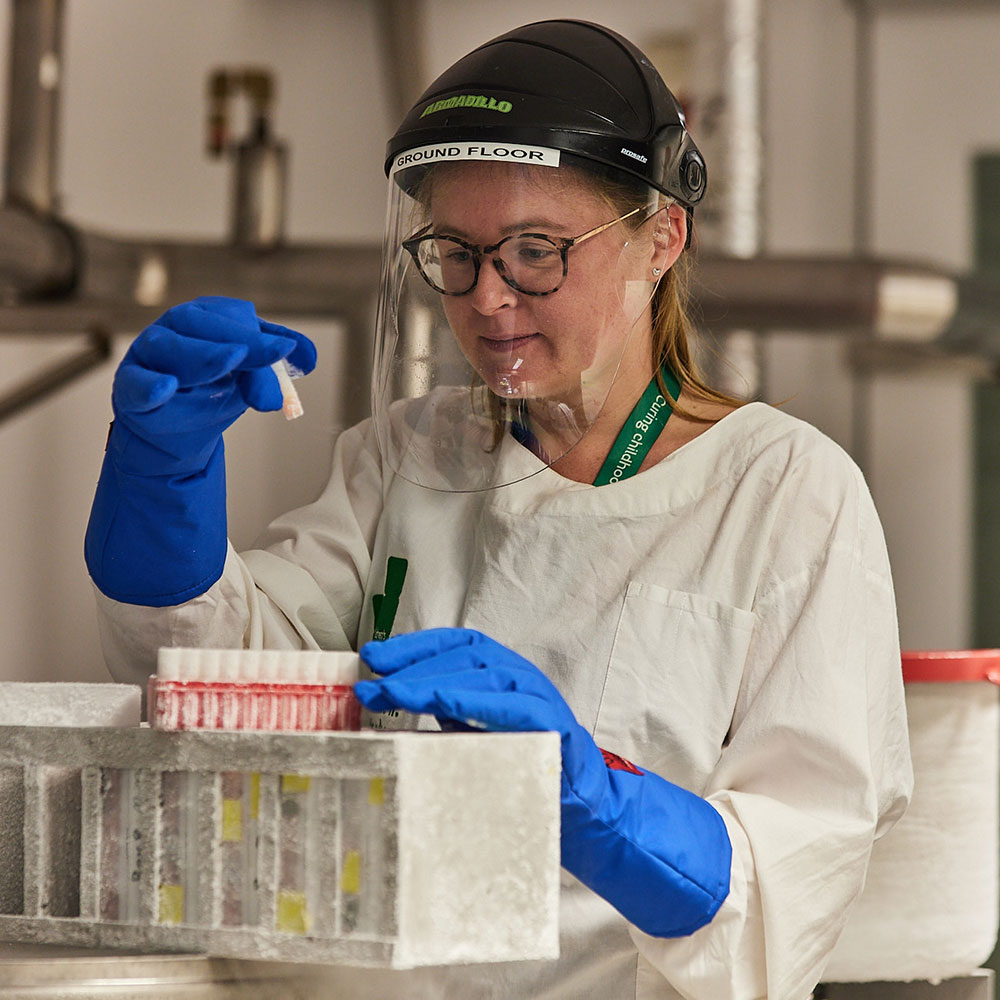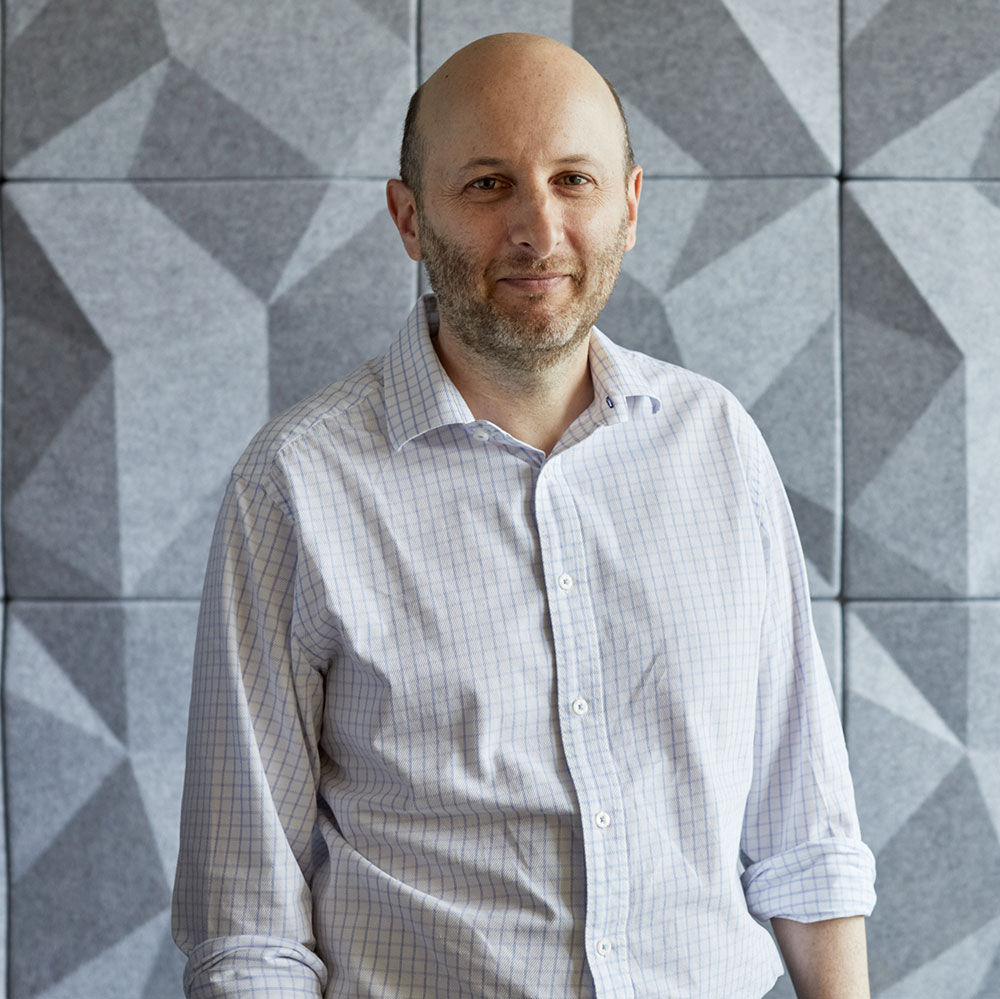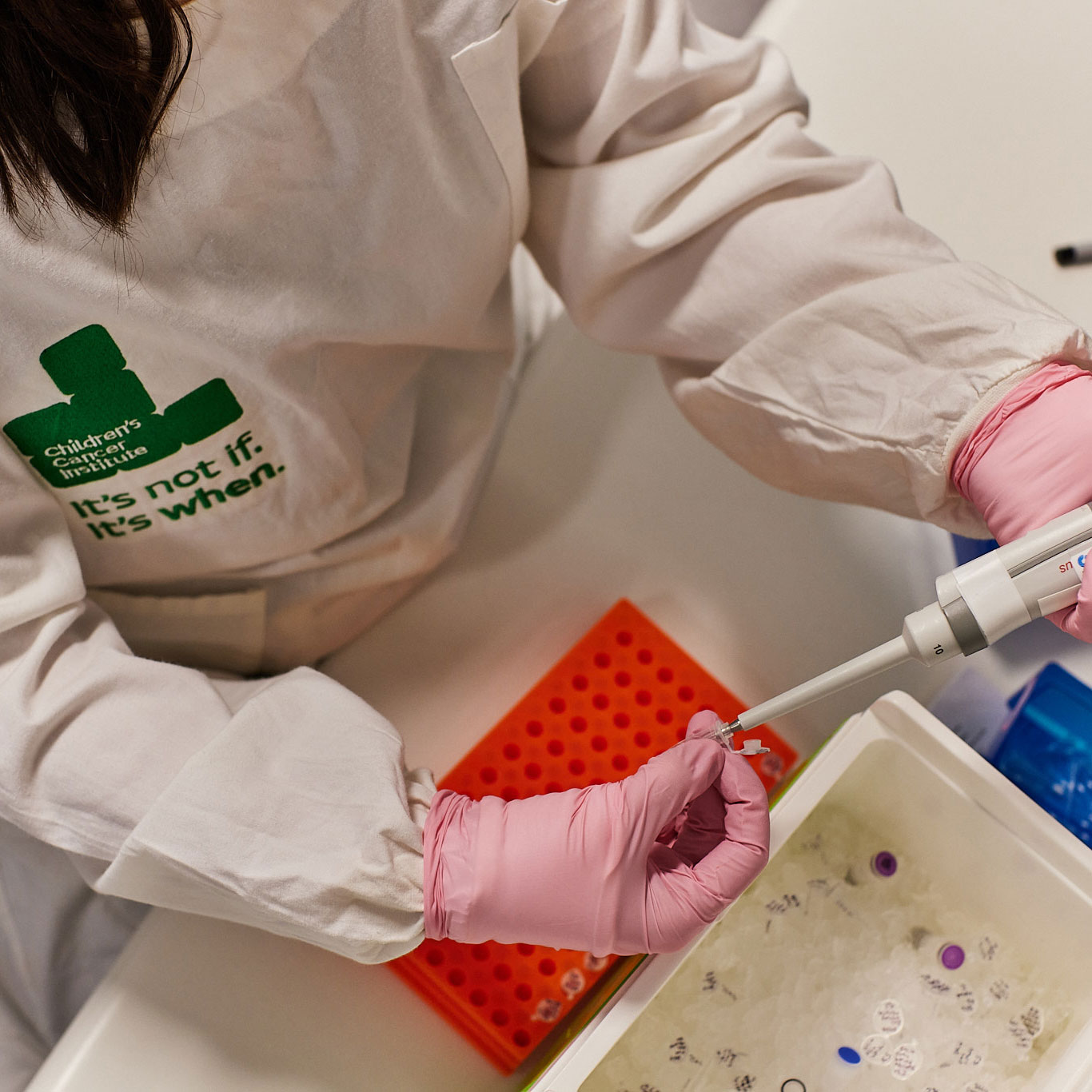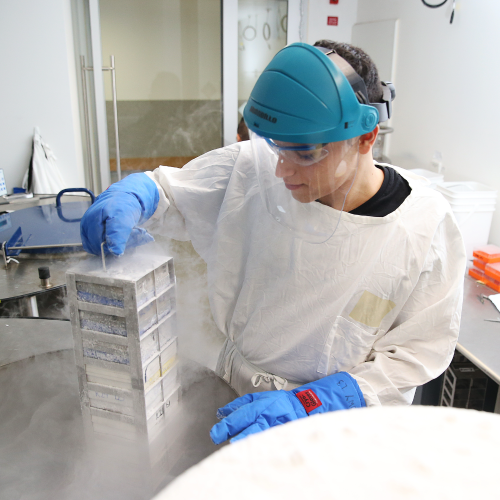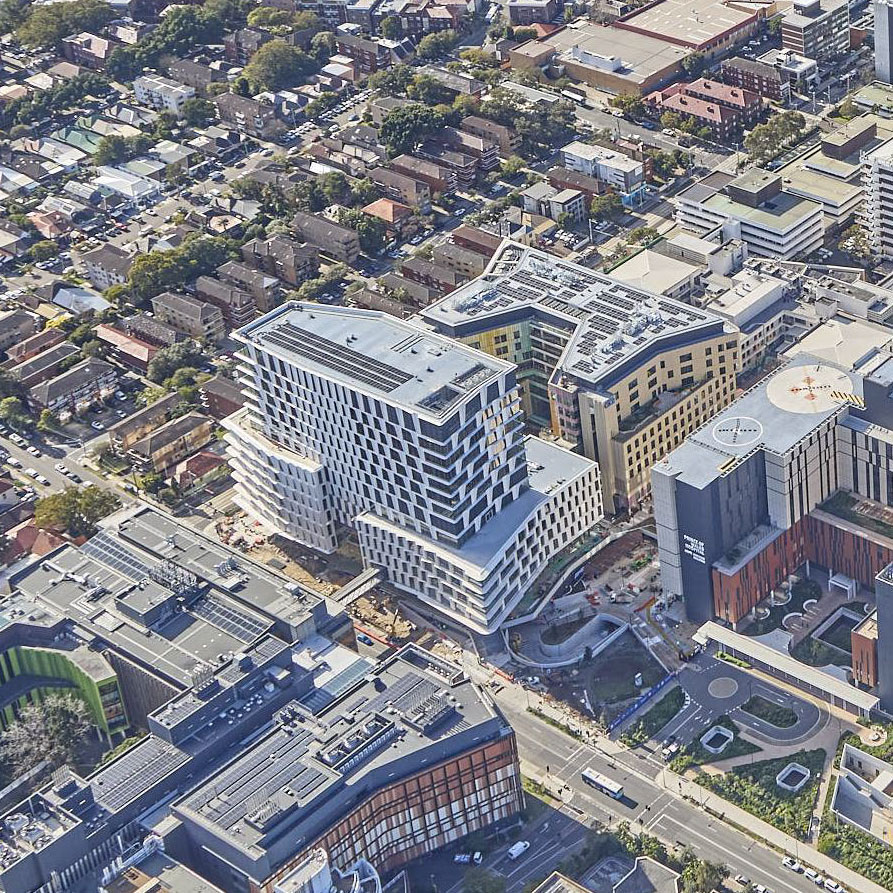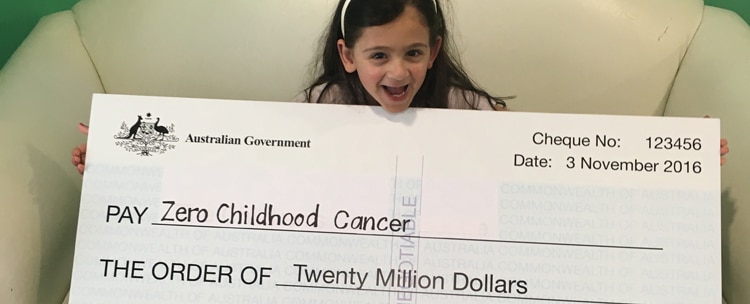
The Prime Minister presented a cheque today for $20M to support Australia’s single-biggest initiative in childhood cancer research, the Zero Childhood Cancer national child cancer personalised medicine program.
The cheque was presented at a ceremony at Sydney Children’s Hospital, Randwick, which is jointly leading the personalised medicine Program with Children’s Cancer Institute.
“The Zero Childhood Cancer program is a wonderful initiative. It is a great national priority. It is designed to ensure that we deliver precisely the right drug in the right way, focused on the particular tumour of the particular child. In other words, highly targeted therapy that does less damage to other organs,” said the Prime Minister.
“This is a network. It is a new level of collaboration across the country and indeed across the world. It means better collecting and sharing of the vital information about the types of tumours, children’s response to treatments and the outcomes of the treatment. And most importantly of all, of course, it means new hope to children, their families, to quicker diagnosis, speedier treatment and better outcomes.”
Professor Glenn Marshall, Clinical Lead of Zero Childhood Cancer, is Head of Translational Research at Children’s Cancer Institute and Paediatric Oncologist, Kids Cancer Centre, Sydney Children’s Hospital, Randwick. He said that the funding represents a significant boost to personalising treatment for the worst kinds of childhood cancer.
“We are delighted to receive this substantial funding from the Prime Minister today.
“The Program is ambitious and complex, and tailor-made treatment is expensive. This Federal Government funding will help us take a giant step forward by scaling up of the program to a national level. It will help fund essential research infrastructure that will allow an entirely new level of profiling, analysis and therapeutic targeting of individuals’ disease, including immunological studies, protein analyses and gene sequencing.
“The funding is critical to deliver the benefits from Zero Childhood Cancer for all children throughout the country with the highest-risk cancers. It shows that the people of Australia are backing this visionary program,” he said.
This year, the Program is in pilot stage – developing laboratory procedures, fine-tuning technologies and expertise, and establishing technical and operational pipelines. Next year, a national clinical trial will commence.
Zero Childhood Cancer, an initiative of Children’s Cancer Institute and the Kids Cancer Centre at Sydney Children’s Hospital, Randwick, involves the detailed laboratory analysis of each child’s unique cancer cells, to help identify the drugs most likely to kill their specific cancer. Scientists and doctors will then work collaboratively to identify and deliver the most effective treatment plan, specifically tailored to suit each child’s individual disease.
Despite the dramatic increase in childhood cancer survival rates over the last sixty years, from virtually 0% to 80%, nearly three Australian children and adolescents still die each week of cancer and 950 children and adolescents in Australia are diagnosed with cancer each year. Seventy percent of childhood cancer survivors experience significant side effects from their treatment which may be life-long.
Professor Tracey O’Brien, Director of the Kids Cancer Centre at Sydney Children’s Hospital, Randwick, says the network of over 15 clinical and research partners across Australia will be significantly enhanced by the funding received today.
“This personalised medicine initiative is the epitome of research translated into clinical practice. It is a model that brings tomorrow’s care to the bedside today.
“I am proud to support many of the families here in their battle against childhood cancer. This Program holds out hope both to them and the families that come after them” she said.
Professor Marshall said Zero Childhood Cancer has had wonderful support from partners like the Cancer Therapeutics CRC and the NSW Government, who came on board early.
“We couldn’t run this Program without the support of partners including Sydney Children’s Hospital Foundation, Australian Cancer Research Foundation, Cure Brain Cancer Foundation, The Kid’s Cancer Project, the Rory Williams Fund, Kids Cancer Alliance, UNSW, the Garvan Institute of Medical Research, Lions Club International Foundation, the Australian Lions Childhood Cancer Research Foundation and the Robert Connor Dawes Foundation.
“This support means we have already made great progress but this is an ambitious, complex program with significant costs,” he said.
The Zero Childhood Cancer clinical trial will run nationally from 2017-2020, with the aim to have shown that a personalised medicine approach is feasible for managing the treatment of children with cancer, and be able to offer the platform as a national personalised medicine program for all Australian children with high risk cancer from 2020.


